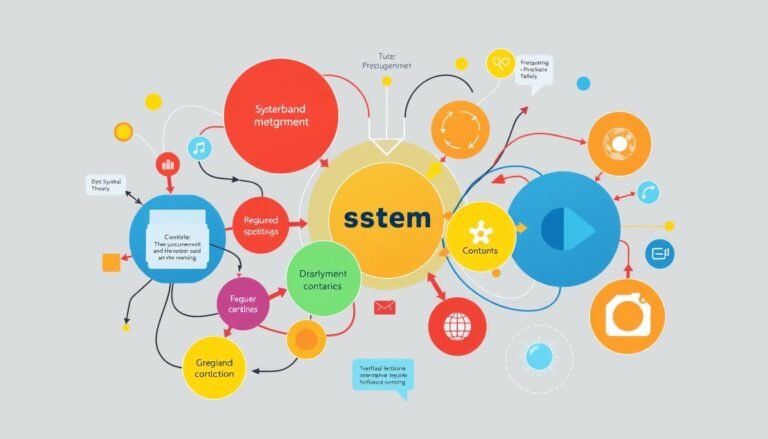Trauma-Informed Care: Supporting Mental Health Recovery in Ireland
When talking about mental health recovery, Michael’s story is always remembered. He’s from Dublin and faced many traumatic events. These left him with severe mental health issues. Even with lots of therapy, nothing helped. But, when he got trauma-informed care, everything changed. This method deeply understands how trauma affects people. It helped Michael start a real journey to recovery. His story shows the power of this approach.
In Ireland, mental wellness is very important. So, groups like Mental Health Ireland and University College Cork worked together. They wanted to dive deep into trauma-informed care. These experts, including Dr. Tony Bates and John Saunders, shared a lot. They used speeches, personal stories, and art to talk about this care. These talks led to making the National Framework for Recovery in Mental Health better. Now, it offers strong support for programs that help with trauma recovery.
Key Takeaways
- The National Framework for Recovery in Mental Health spans the years 2024-2028.
- The Health Service Executive (HSE) is integrating lived experience expertise into mental health services.
- Principles of trauma-informed care include safety, trust, empowerment, and collaboration.
- Trauma-informed care can lead to a 25% reduction in hospital admissions for severe mental health conditions.
- The prevalence of trauma-related mental health conditions affects approximately 1 in 4 individuals in Ireland.
Introduction to Trauma-Informed Care in Ireland
The world is realizing how important the Trauma-Informed Approach is for mental health. Ireland is making big strides in this area, focusing on helping people recover from mental health challenges and trauma. These efforts show Ireland’s deep commitment to using trauma-informed care in different health and social care places.
Definition and Importance
A Trauma-Informed Approach looks at how trauma affects many people. It cares about making sure people feel physically, mentally, and emotionally safe, both those getting help and those giving it. This method is key for Ireland’s Mental Health Recovery, making sure its services understand and meet trauma survivors’ needs.
Mental Health Ireland offers a Certificate in Trauma-Informed Care program to help professionals support trauma survivors. This program is thorough and costs €950 for EU students. To join, you need a Level 8 qualification. The effort and cost of this course show Ireland is serious about quality trauma care education.
History and Development in Ireland
Ireland is starting to see the long-lasting effects of trauma. It is using new findings from neurobiology, somatic, and attachment research to shape its mental health services. This approach focuses on recovery and ensures complete support for survivors of trauma.
In the last few years, Ireland has made policies to back up trauma-informed care. These policies come from the Department of Health’s recommendation. Also, the Recognition of Prior Learning (RPL) at DkIT helps people join training even if they don’t meet all the usual academic standards.
Trauma Support Services are doing more than before, not just in clinics but in communities too. The goal is to make sure caring for trauma is kind and ethical. They aim to phase out practices that could restrict people, setting a new, caring standard in Ireland.
Groups like Mental Health Recovery Ireland and Trauma Support Services are critical for creating safe spaces. They work to heal and lower the risk of re-traumatizing people. These groups show Ireland’s dedication to helping communities and individuals recover from trauma.
The Principles of Trauma-Informed Care
Trauma-Informed Care is all about providing a supportive place for those who have faced trauma. These principles help create settings that support healing and resilience. Services become more effective when these principles are included. People feel understood and cared for.
Safety and Trust
Building safety and trust sets the foundation in Trauma-Informed Practices. It’s about making a space where people feel both physically and emotionally safe. This happens through clear communication, doing what you say, and providing stable interactions. Such practices encourage trust building, which is essential.
Empowerment and Choice
The Trauma Healing Approach focuses on giving people choices. Actively including them in their own recovery gives them power back. This strategy is about respecting their decisions to ensure they feel in control of their life again.
Collaboration and Mutuality
Trauma Support Services are more effective when everyone works together. This involves forming partnerships, not just following orders. By sharing decision-making and working together, respect and trust grow. It’s a team effort for the well-being of those being helped.
Cultural, Historical, and Gender Issues
Being aware of cultural, historical, and gender issues is key in Trauma-Informed Practices. It’s crucial to respect diverse backgrounds to offer truly safe care. This involves always learning about different cultures and being sensitive. It’s about making sure everyone’s unique story is valued.
Trauma and Mental Health in Ireland
Trauma is everywhere and deeply affects people’s lives. In Ireland, it’s a key topic in mental health talks. There, experts realize helping with trauma is vital for mental health healing.
Prevalence of Trauma
Trauma is very common among those who get help from psychiatric services. They are much more likely to have faced sexual and family abuse than others. Around 30% to 60% of patients in the UK have suffered major domestic violence.
In Ireland, about 38% of mental health professionals overlook domestic violence in their assessments. This proves the urgent need for trauma-based care in mental health services.
Impact on Mental Health
Trauma has a big impact on mental health, often needing strong support. It is a top reason people seek mental health services. This affects not just individuals but also how institutions work.
Bad experiences in mental health wards can also cause trauma. Using Trauma-Informed Care helps build helpful and supportive relationships. These are key for Mental Health Recovery in Ireland.
A study in the US found most people, both men and women, have been through a trauma. Men often see violence, while women face natural disasters. This shows how important it is to offer trauma-informed care to everyone.
Ireland is shifting towards models focusing more on recovery and the person. Recognizing and dealing with the widespread effects of trauma is crucial on this path.
Trauma-Informed Care: Supporting Mental Health Recovery in Ireland
Trauma-informed care in Ireland helps those with trauma background. It understands that some behaviors in mental health units show distress. And so, it works to avoid forcing safety through coercive measures.
The work of trauma-informed practice (TIP) to lessen forceful actions is very important. A study with professionals showed big benefits. It indicated changes in how people see TIP, the struggles in teaching it, and the importance of teamwork. These show why recovery-focused mental health nursing practice matters a lot.
In Cork Kerry Community Healthcare, they aim to cut back on forceful health care methods. This includes input from those directly affected. Care, staff, and leaders join to make places safe together. Yet, using force is seen as a final step, when every other choice has been tried.
They also focus on using positive support over force. It falls in line with human rights standards and aims for respectful care. But, there’s a call for more TIC training to better mental health care for young people.
Dealing with trauma recovery continues to be a big goal in mental health in Ireland. Mental Wellness Ireland brings many healing steps to various places. Its work supports a broader national move towards a kinder mental health recovery journey for all.
National Frameworks and Policies Supporting Trauma-Informed Care
The understanding of trauma’s effects on mental health is a key issue in Ireland. National frameworks and policies address this. They highlight the need to view trauma in mental health care, support recovery-focused methods, and ensure services meet everyone’s needs.
Sharing the Vision: A Mental Health Policy for Everyone
The policy “Sharing the Vision: A Mental Health Policy for Everyone” is critical. It ensures that mental health care is inclusive and comprehensive for all in Ireland. The document promotes understanding of trauma in care, focusing on the recipients’ experiences.
It encourages support for recovery and wellbeing, aligning with Trauma Support Services goals. This approach helps tackle mental health problems caused by trauma.
National Framework for Recovery in Mental Health 2024-2028
The “National Framework for Recovery in Mental Health 2024-2028” continues earlier work. It shows Ireland’s dedication to a mental health system focused on recovery.
This framework puts forward the idea of co-producing services. This means that people with direct experiences help shape these services. The plan has eight key areas, including leadership and trauma-informed care.
It stresses the need for strong leadership and evidence-backed approaches. Such steps help the mental health system support recovery and boost care quality overall.
Mental Health Policy Ireland and the National Framework work for better services. They use trauma-informed care to offer whole and tailored care. This makes Ireland’s mental health system more inclusive and efficient.
Implementing Trauma-Informed Practices
Using trauma-informed practices in mental health settings greatly helps people with trauma pasts. It gets service providers better trained and creates sensitive, caring environments. So, let’s cover how to put these practices in place effectively.
Training and Education for Service Providers
It’s key to train service providers well in Trauma-Informed Care. Over seventy studies have looked at these practices in different areas. This makes sure providers know how trauma affects people and the best recovery support methods.
Understanding Adverse Childhood Experiences (ACEs) is vital. A study by Felitti et al. in 1998 showed how childhood abuse links to adult health issues. This helps providers offer better care to lessen long-term effects.
Creating Trauma-Informed Environments
Being aware and responsive to trauma is the first step in good care. Trauma-Informed Services aim to make strong, helpful relationships. This has been backed by research into changing organizations for better trauma care.
Now, globally, more places are moving towards Trauma-Informed Care (TIC). The UK, Europe, Australia, and New Zealand have adopted this model. This approach also helps reduce stress for those who offer care, as shown in studies by Bride et al. (2009) and Robinson-Keilig (2014).
The big aim is to spread strong care models across different sectors: child welfare, family support, justice, mental health, and education. This way, everyone knows and uses trauma-informed practices well. It helps the mental health recovery of anyone affected by trauma.
Role of Trauma Therapy Services in Mental Health Recovery
Trauma therapy services are vital for mental health recovery. They offer personalized healing for each individual. These services provide emotional support and help build strength in trauma survivors.
Types of Trauma Therapy
Different types of trauma therapy are available, each targeting specific symptoms. Some common therapies are:
- Cognitive Behavioral Therapy (CBT): It changes negative thoughts linked to trauma into positive ones.
- Eye Movement Desensitization and Reprocessing (EMDR): EMDR uses eye movements to process traumatic memories.
- Prolonged Exposure Therapy: It helps patients face their trauma memories gradually.
- Somatic Experiencing: This therapy works with the body’s reaction to trauma. It aims to reduce stored stress.
Benefits of Trauma Therapy
Trauma therapy offers extensive benefits to those recovering from trauma. It gives them the tools and support needed to move past their experiences. The main benefits are:
- Improved Coping Strategies: Trauma therapy gives individuals better ways to handle stress and emotions.
- Emotional Regulation: It helps manage strong emotions and lessen their effect on daily life.
- Resilience and Empowerment: Therapy helps build resilience and empowers survivors to take control of their lives.
With over half of the U.S. population facing trauma, access to therapy is crucial. Quality trauma therapy lessens the long-term mental health effects of trauma. It supports individuals on their journey to recovery.
Community-Based Trauma Support Services
In Ireland, community-based work is critical for essential trauma support. These projects include peer support, where people can share their stories. This helps everyone in their healing journey. This approach improves mental health and makes our communities stronger and more caring.
Examples of Community Initiatives
In Ireland, many projects are effectively helping with trauma support. For example, Focus Ireland is looking into how homelessness affects children’s emotions and mental health. This study wants to find real ways to help these kids and their families.
ADHD Ireland offers free activities and some paid services, like parenting courses. ALONE helps older people by providing friends and improving their mental health. Foróige works with young people aged 10 to 24 to help them avoid feeling left out and to reach for their goals. CARI focuses on children affected by sexual abuse, providing them with the therapy they need.
Importance of Peer Support
Peer support is key in getting over trauma. Sharing your story with a supportive group can make you feel less alone and more understood. For example, Grow is a group that helps adults with mental health issues through mutual support and personal growth. They show how important it is to recover together.
Community projects for trauma show us the value of a Whole Healing Approach. This means joining therapy with compassionate, peer support. This combo helps people heal fully and become part of the community again.
Case Studies: Success Stories in Ireland
In Ireland, trauma-informed care is changing lives for the better. It’s helping many on their journey to better mental health. The Cork Simon Community shows us how these approaches work.
Personal Narratives of Recovery
Stories of recovery from Cork Simon Community are truly uplifting. One story tells of someone who beat drug problems and found a home with their help. This place helps about 1,200 people a year, with 53 finding a safe place to sleep each night.
These stories remind us why empathy and understanding in helping people overcome trauma are key.
Impact of Trauma-Informed Care
At Cork Simon, their care has a big reach. They have over 120 people ready to help, trained in understanding trauma. Their approach has not only changed lives for those they support, but it’s also benefiting their workers. It’s showing the importance of good supervision and self-care for everyone involved.
Successes aren’t just local. Events for people from Honduras, by IJM and CDH, inspired many. Plus, IJM’s Global Survivor Network Council is showing the world the power of survivor stories. This boosts the effects of trauma-informed care globally.
Stories of success in trauma-informed care do more than share personal victories. They push for bigger changes and spread hope for those fighting to heal.
Conclusion
Trauma-Informed Care in Ireland shows a clear need for such an approach to boost mental health recovery. It focuses on safety, empowerment, and working together. This way, the mental health system can give better care that meets the specific needs of trauma survivors.
Projects like ‘You in Mind’ and the ImROC scheme are leading the way in offering care centered on recovery. They follow the Mental Health Strategy 2021-2031, which pushes for trauma-informed practices. While service differences in different areas are a hurdle, the move towards a unified recovery model and Recovery Colleges is hopeful.
Support from communities and families is key in this effort. Involving family in the care process is shown to lower reoccurrence and make mood disorders less severe. Many places, including Europe, Australia, and North America, are promoting family-focused care. So, Ireland needs to keep up, making settings that help both individuals and their families.
At the end of the day, integrating trauma-informed care in therapies and programs is essential for better mental health outcomes. With continued work and studies, the mental health scene in Ireland looks brighter. This shows that providing care in a comprehensive and understanding way works.
FAQ
What is Trauma-Informed Care and why is it important?
It’s an approach that knows trauma’s big impact on mental health. It creates safe, supportive spaces for healing. It works by making safe places and trusting relationships. This model helps people better their mental health by understanding and valuing their stories.
How has Trauma-Informed Care developed in Ireland?
It’s grown a lot in Ireland thanks to groups like Mental Health Ireland and more. They work with policies like ‘Sharing the Vision.’ This model focuses on teaching providers to be mindful of people’s past traumas.
What principles are foundational to Trauma-Informed Care?
Safety, trust, empowerment, and choice are key. So is working and solving things together. It’s about knowing and respecting each person’s history and culture. These basics make sure people get care that’s kind and fits them, helping in the healing process.
How prevalent is trauma in Ireland, and what is its impact on mental health?
Trauma is a big issue in Ireland, affecting mental health a lot. It can cause anxiety, depression, or PTSD. Understanding how common and impactful it is helps make better mental health programs that truly heal.
What are some of the national policies supporting Trauma-Informed Care in Ireland?
‘Sharing the Vision’ and the ‘National Framework’ back up these caring policies in Ireland. They push for services to look at the real effects of trauma. And they highlight how important it is to listen to those who’ve gone through it, making support more about their stories.
What role does training and education play in implementing Trauma-Informed Practices?
Proper training and learning are key to putting this kind of care into action. Staff learn to be respectful and considerate of trauma victims’ needs. Knowing the basics of trauma care helps them be more helpful and caring, aiding recovery.
What types of trauma therapy services are available, and what are their benefits?
There are many services, like CBT and EMDR, aimed at helping with trauma. They teach better ways to cope, manage deep feelings, and work on tools for fighting back. These personalized therapies are a big step in getting better and staying mentally healthy.
How do community-based trauma support services contribute to mental health recovery?
These local services help a lot by connecting people and sharing experiences. They lessen the feeling of being alone and boost healing as a group effort. Communities that come together to help in these ways find more strength and mental health joy.
Can you provide examples of successful trauma-informed care in Ireland?
In Ireland, many have found great healing stories through trauma-informed care. These personal tales show how caring models can truly change lives for the better. They give hope to others walking the same healing journey.
Source Links
- A National Framework for Recovery in Mental Health
- Trauma-Informed Care, Psychological First Aid, and Recovery-Oriented Approaches in the Emergency Room | Emergency Psychiatry
- Certificate in Trauma Informed Care at Dundalk Institute of Technology | DkIT – Dundalk Institute of Technology
- Introduction to trauma-informed care
- A Review of the Literature – Trauma-Informed Care in Behavioral Health Services
- Trauma Informed Care (TIC) Practice in an Irish in-patient mental health setting; a clinical social worker’s reflection
- An evaluation of a trauma-informed educational intervention to enhance therapeutic engagement and reduce coercive practices in a child and adolescent inpatient mental health unit – PubMed
- Experts highlight importance of trauma-informed policy and practice to future of Irish health services – Mental Health Reform
- Summary of the new National Quality Framework: Driving Excellence in Mental Health Services – HCI
- Trauma-informed care in the UK: where are we? A qualitative study of health policies and professional perspectives
- Implementing Trauma Informed Care in Human Services: An Ecological Scoping Review
- What is Trauma-Informed Care?
- Implementing Trauma-Informed Care—Settings, Definitions, Interventions, Measures, and Implementation across Settings: A Scoping Review
- Support Services| National FRC Mental Health Promotion Project
- Community-based models of care facilitating the recovery of people living with persistent and complex mental health needs: a systematic review and narrative synthesis
- Trauma-Informed Care Builds Resilience for Survivors of Human Trafficking and Violence
- Trauma and trauma care in Europe
- Trauma-informed care in the UK: where are we? A qualitative study of health policies and professional perspectives – BMC Health Services Research
- Family-focused practice within a recovery framework: practitioners’ qualitative perspectives – BMC Health Services Research








